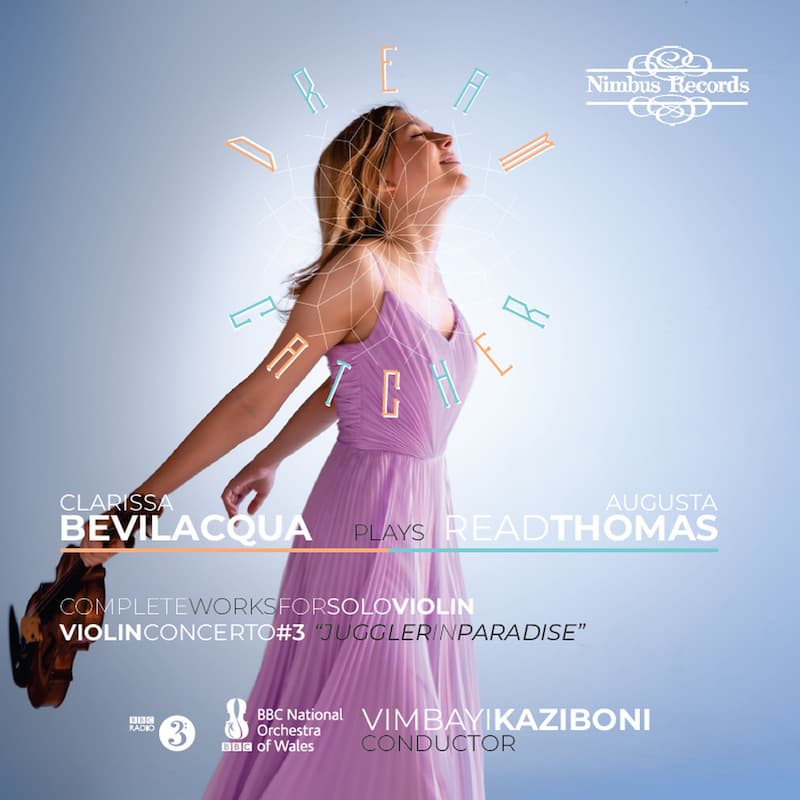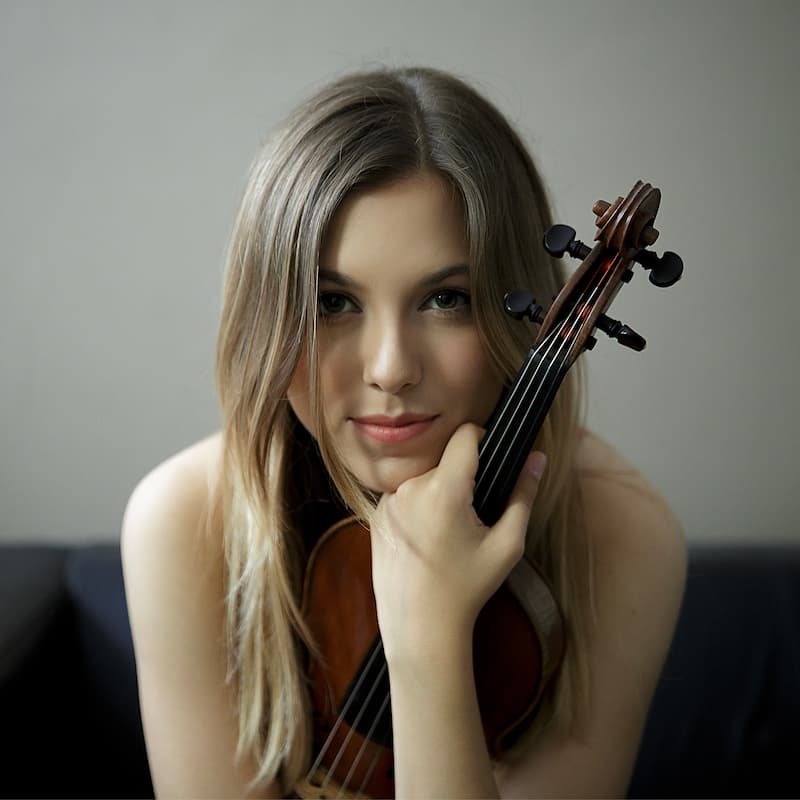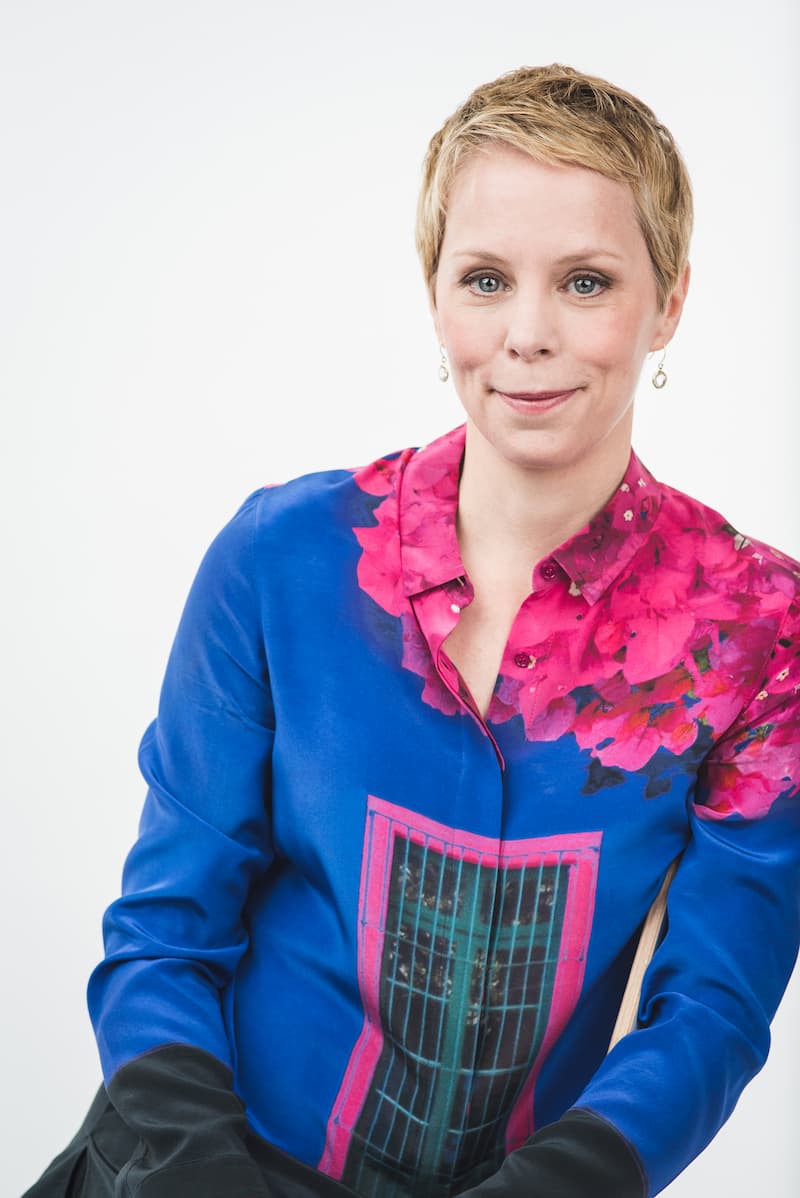A recent Nimbus recording brings us the violin music of American composer Augusta Read Thomas. Professor of Composition at the University of Chicago and founder of the University of Chicago’s Center for Contemporary Composition, Thomas can be considered on the cutting edge of new American composition. This new CD is filled with her works for solo violin, covering a range of some 21 years of composition, and finishes with the world premiere recording of her third violin concerto, ‘Juggler in Paradise’.

The violinist, Clarissa Bevilacqua, conquers an impressive repertoire that calls on all aspects of technique for a contemporary violinist. We talked for a bit about what it was as a newly graduated violinist to enter into the new world of music. One’s teachers can only teach what they have learned and scale the beginning and ending of everything or does the same kind of flexibility with social media have a place as well?

Clarissa Bevilacqua
The work was three years in preparation (with the inevitable COVID interruption). Learning the music, going over the music with the composer (a wonderful benefit of working with a living composer), considering any changes to the music, etc. Ms. Bevilacqua noted that when a work gets into a new performer’s hands, they’re coming at it with their experience, and the composer may have later thoughts or changes in their compositional language as well. Two works, although originally written for violin, were first recorded on other instruments and that required some rethinking as well.
Augusta Read Thomas: Rush
The recording of the solo violin music begins with the impressive Rush, which refers to not only the rush we get from things we imbibe such as a sugar rush or a caffeine rush but also the rush of everyday life – things external to us. We seem to have fewer and fewer chances to just sit down and consider things or to listen to things. After this pulsing beginning, the album gradually slows down.
Augusta Read Thomas: Caprice
Caprice, written in 2005, is one of the performer’s favourites. Its title harkens back to Paganini’s 24 Caprices, but also the essence of ‘caprice’: wild and random, jumping from here to there and then somewhere else – if nothing else, you feel your mind expanding!

Clarissa Bevilacqua and Augusta Read Thomas
Augusta Read Thomas: Rainbow Bridge to Paradise
Rainbow Bridge to Paradise, written in 2016, makes its bridge by starting low and ending up in the stratosphere of the violin range. Step by step, pitch or two pitches at a time, the work advances and makes it way up to become the bridge to Paradise, i.e., the violin concerto that ends the work, Juggler in Paradise.
Violin Concerto No. 3, Juggler in Paradise: IV. Romp
On the other end of the scale from the works for solo violin, is Thomas’ Violin Concerto No. 3, entitled Juggler in Paradise, here in its world premiere recording. Although her first two concertos were written for violin and a chamber ensemble, this work, written in 2008, is for violin and very large orchestra and is here performed with the BBC National Orchestra of Wales. The work is in one movement but has been broken up on the recording into smaller tracks. The names of the six individual sections are important to show the breadth of the work: 1. Spacious and elegant; 2. Majestic, playful, vivacious; 3. Playful, spry, jazzy; 4. Romp; 5. Spacious; and 6. Dreamy and floating. The frenetic drive to 4. Romp is soon released by 5. Spacious. The 6. Dreamy and floating ending is a perfect parallel to the 1. Spacious and elegant opening.
We’ll focus on the climax of the violin concerto and the fourth section entitled Romp. Here the entire power of the BBC National Orchestra of Wales comes to the fore. Thomas’ writing for this piece called for a ‘very large orchestra’ and the number of percussionists alone (wait for the bongo drum solo) is an indication of the forces on call.
When you look at the album as a whole, the works are brief, the shortest only 2 minutes and the longest just over 6 minutes in length. This was something that Bevilacqua thought was a good thing for the modern audience that wants things to be brief. It’s another reason why the one-movement concerto was broken up into 6 parts: to allow the audience to find the places they loved.

Augusta Read Thomas © Anthony Barlich
We asked Bevilacqua what was next and her first reply was to rest from recording for a bit, but that, of course, involves taking this material from her first CD on the road. She’s not playing complete Augusta Read Thomas concerts but combining it with music from other periods. She’s also launching her own music festival in Salzburg in the autumn: a chamber music festival for performers under 30. Her four years of study in the city have left her with a love of the place, but she also wants to bring it more modern offerings. It may be the city of Mozart, but it’s also the city of Bevilacqua and she wants to make her contribution, too!
For more of the best in classical music, sign up to our E-Newsletter




